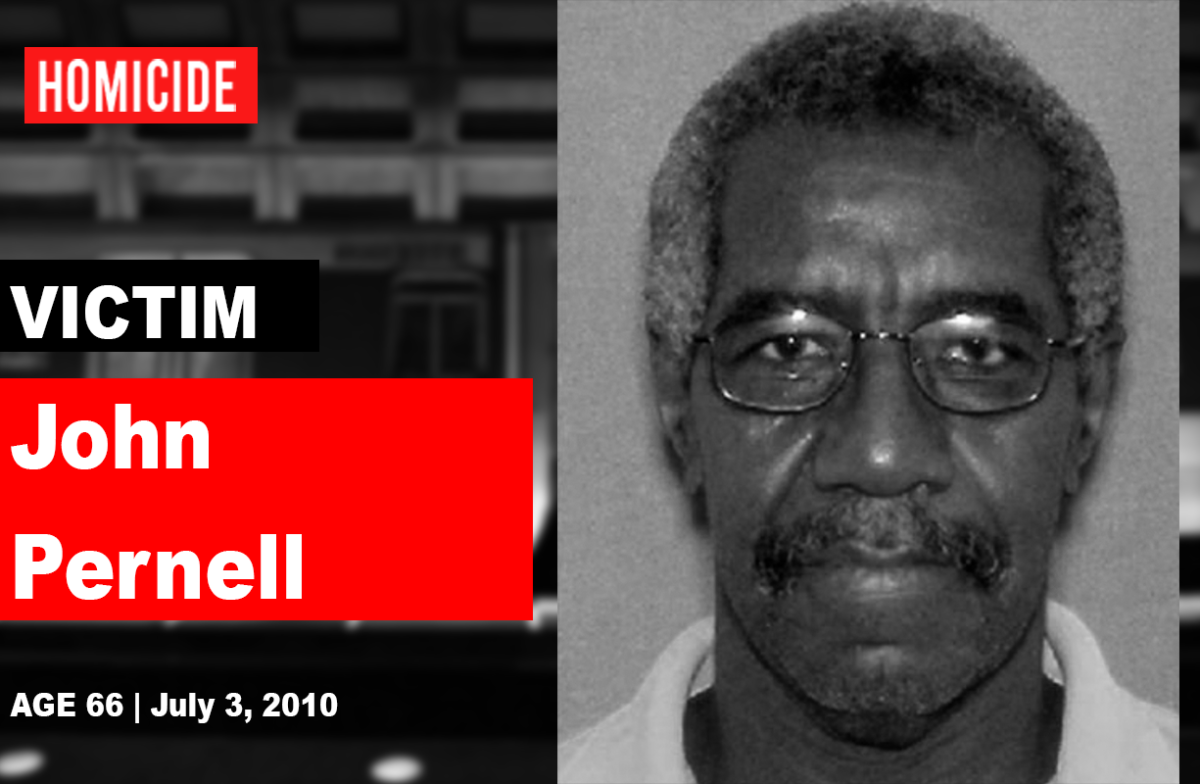
Thank you for reading D.C. Witness. Help us continue our mission into 2024.
Donate NowBy
Christopher Sivak [former]
- February 13, 2023
Court
|
Daily Stories
|
Homicides
|
Shooting
|
Suspects
|
Victims
|
DC Superior Court Judge Anthony Epstein elected to continue a motions hearing on Feb. 13 due to questions he had that could help him make a decision on the defendant’s release.
Kavon Young, 32, is charged with first-degree murder while armed for allegedly shooting John Pernell, 66, on July 3, 2010, on the 3000 block of Nelson Place, SE.
The prosecutor and defense both stated they had no plans to call any witnesses during the hearing, but that the defense did have a motion to dismiss the case due to a failure of the prosecution to preserve evidence.
According to both the prosecutor and defense, DNA extracts from fingernail clippings in 2011 were never returned to the Metropolitan Police Department (MPD), according to chain of custody forms.
The prosecution requested in November 2021 to retest the DNA extracts and other evidence, but the extracts were never submitted.
The prosecutor said he had been searching for the extracts since July of 2022.
The defense requested specifics on what was done to recover them, arguing that they have the right to test those extracts independently, and now that they can no longer do so. It was a discovery violation against the prosecution for not preserving evidence, the defense said.
Judge Epstein asked the prosecutor what specific evidence they have against Young.
The prosecutor said that he would have DNA evidence and witnesses at trial, however the witnesses would only provide a general description of the suspect and could not identify Young as the offender.
Judge Epstein stated that he could not find any precedent to a case dismissal but requested expert testimony to corroborate how influential the retesting of evidence would have been.
The defense also requested Young’s release due to being incarcerated for three years, lack of evidence by the prosecution, and because Young has been in a rehabilitation program for two years.
Judge Epstein requested that the defense make sure Young can pass the High Intensity Supervision Program (HISP) qualifications with the Pretrial Services Agency, which would determine if he is qualified for release.
The defense should also provide Judge Epstein with more information regarding the defendant’s rehabilitation process.
Young has two prior offenses for gun possession in 2011 and 2016 but did not have any prior criminal history that would deem him violent.
The parties are scheduled to return for a status hearing on March 10.
Follow this case